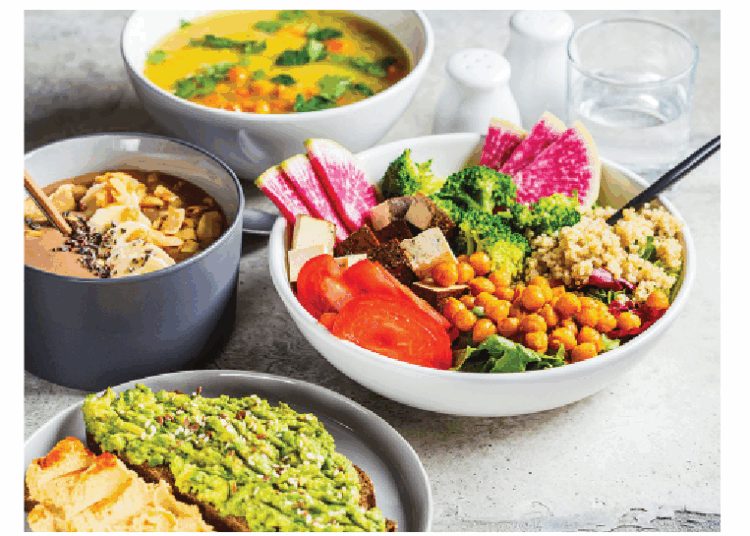On a busy Abuja evening, suya sellers, shawarma kiosks, and fast-food outlets light up the streets. Plates are full, bellies are heavy, and yet, millions of Nigerians are undernourished. Welcome to Nigeria’s growing paradox: eating more, but nourishing less.
Malnutrition isn’t only about empty stomachs; it’s also about empty calories. According to UNICEF, Nigeria has one of the highest burdens of malnutrition globally, with thirty-seven per cent of children under five stunted, seven per cent wasted, and twenty-two per cent underweight (UNICEF, 2023). Here is the twist, while children battle stunting, adults are increasingly grappling with obesity and diet-related chronic diseases.
We are consuming more food than ever before, but much of it is ultra-processed, fried, or sugar-loaded. The World Health Organization (WHO) notes that diets heavy in refined carbs, trans fats, and sweetened beverages increase the risk of hypertension, diabetes, and heart disease (WHO, 2023). Nigeria, like much of Africa, is caught in a “double burden of malnutrition”: undernutrition on one hand, and obesity-driven diseases on the other.
Why are we eating more but nourishing less? Urban lifestyles and fast food.
Quick bites have replaced home-cooked meals. A plate of rice and stew from a roadside spot is affordable and filling, but often nutrient-poor.
- Rising Food Costs
As inflation bites, households prioritise “belly-filling” staples (rice, garri, noodles) over fruits, vegetables, and protein. The National Bureau of Statistics reports that food inflation stood at 40.66% in May 2024, squeezing access to nutritious options.
- Nutrition knowledge Gaps
Many Nigerians equate being “well-fed” with eating large quantities of food. A pot of white rice with palm oil might taste satisfying, but it delivers little beyond calories.
- Cultural Perceptions
In some communities, “chubby” still equals “healthy,” while leaner body types raise concern, even if the person is fit. This fuels overfeeding, especially in children.
- The Processed Food Invasion
Multinational brands and local imitations flood markets with biscuits, drinks, and instant noodles. They are cheap, addictive, and aggressively marketed. But they offer little in terms of micronutrients.
The cost of the nutrition trap. The toll is already visible. A recent Lancet study (2023) identified poor diet as a leading cause of non-communicable diseases globally, and Nigeria is not exempt. Urban hospitals report increasing cases of hypertension, type 2 diabetes, and childhood obesity. Meanwhile, micronutrient deficiencies, iron, vitamin A, iodine, persist across both rural and urban populations.
In essence, we are eating our way into poor health: “hidden hunger” from nutrient deficiencies, and “visible over-nutrition” from excess calories.
Escaping The Trap: What Can Be Done?
Return to indigenous foods. Local staples like beans, millet, ofada rice, okra, and leafy greens are nutrient powerhouses that sustained generations before processed imports took over.
Smart shopping on a budget. Even with inflation, small shifts help: buying seasonal fruits, using groundnuts or beans for protein, or mixing vegetables into every meal.
Nutrition education. Schools, workplaces, and media need to emphasize food quality over quantity. For example, a child’s lunchbox with moi moi and orange slices beats biscuits and soda hands down.
Policy push. Government can subsidize local farm produce, regulate unhealthy food advertising (especially to children), and enforce fortification policies.
Lifestyle adjustments. Eating balanced meals, reducing portion sizes of starchy foods, and limiting sugary drinks are small but powerful steps.
A Call To Reflection
The irony is painful: in the same household, a child may be stunted while the father battles hypertension and the mother struggles with anemia. Food is abundant, but nourishment is scarce.
As Nigerians, we must shift the conversation from “Did you eat?” to “What did you eat?” Because in the long run, it is not the volume of food on our plates that secures our health, but the value of nutrients within it. At the heart of it all, perhaps the solution lies closer than we think. Nigeria is blessed with arable lands and an abundance of indigenous staples, millet, beans, yam, vegetables, groundnuts, and plantains, that are naturally nutrient-dense. Normalizing these foods in our everyday diet, rather than seeing them as “old-fashioned,” may be the key to breaking free from the nutrition trap. Sometimes, the nourishment we seek in imported or processed options has always been right here on our farms and in our local kitchens.





